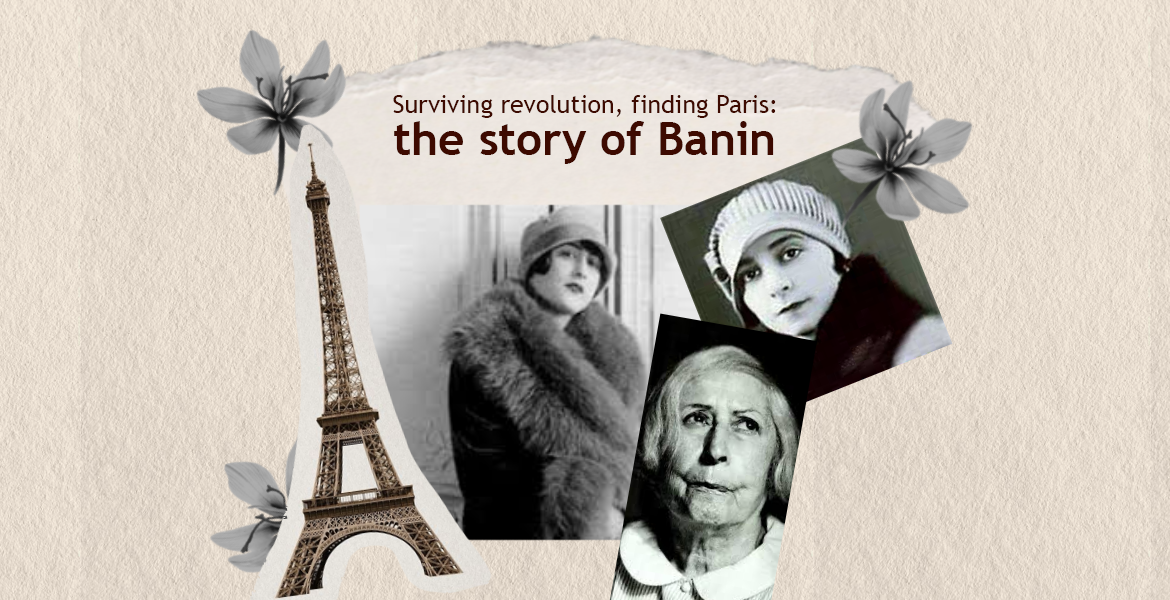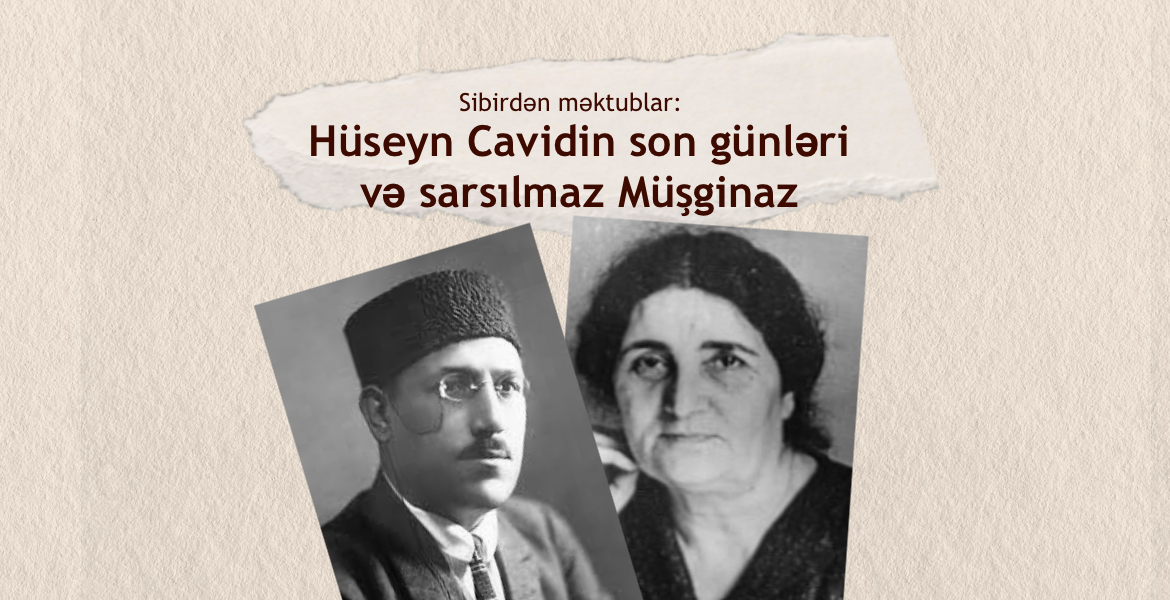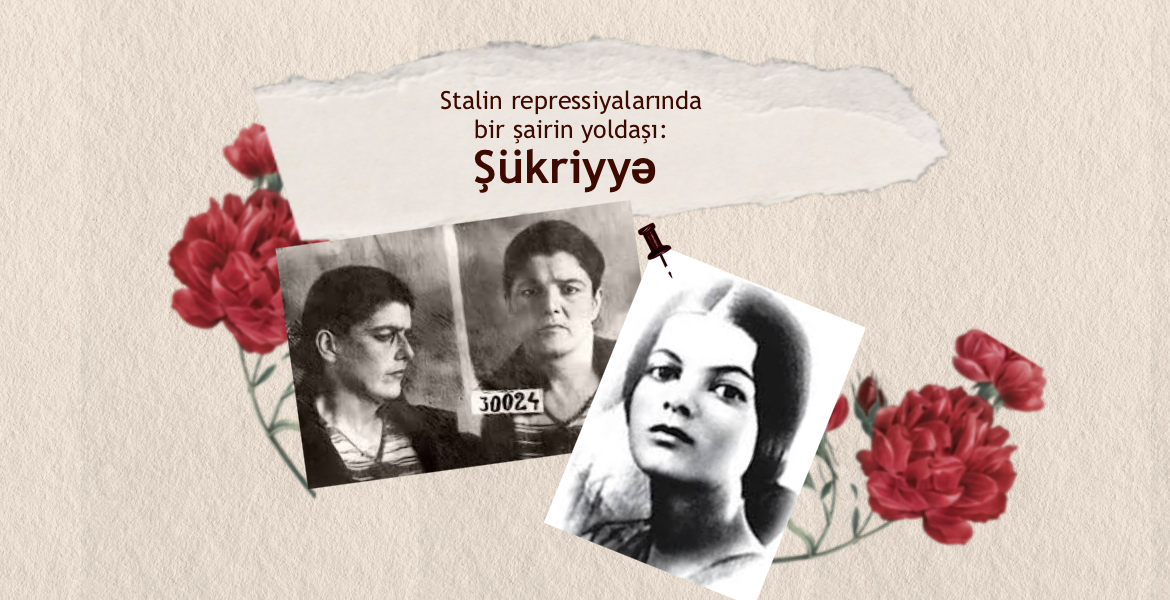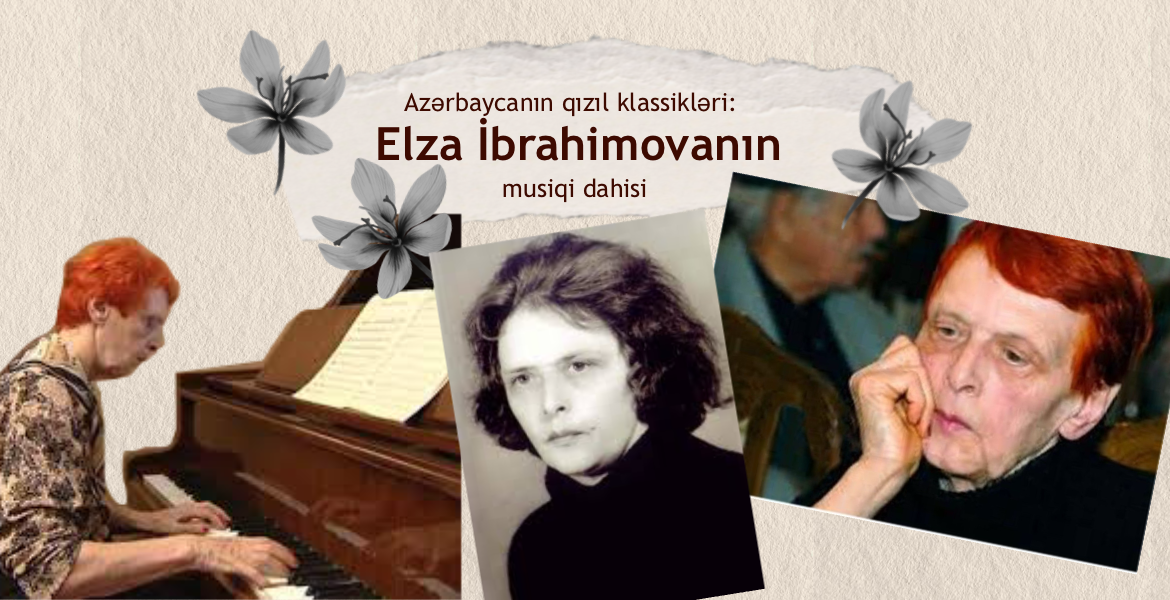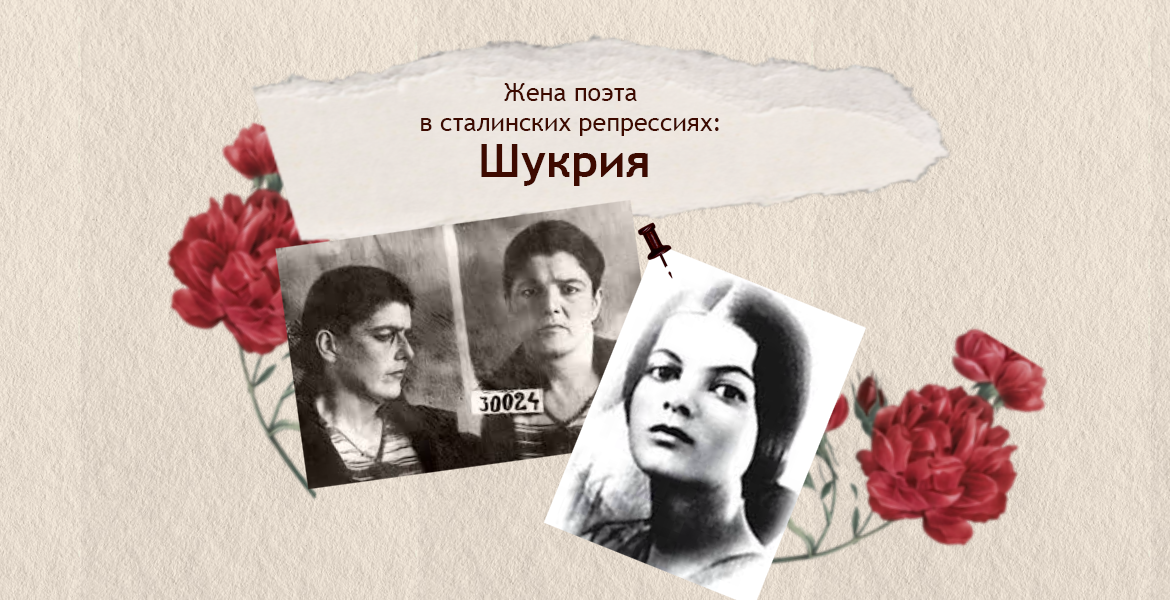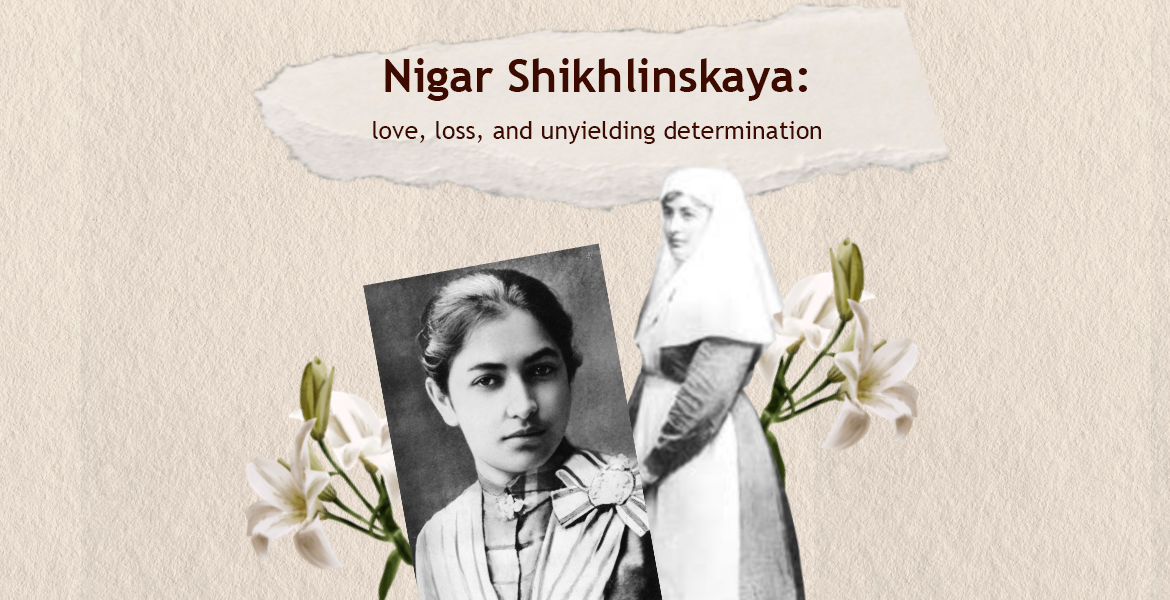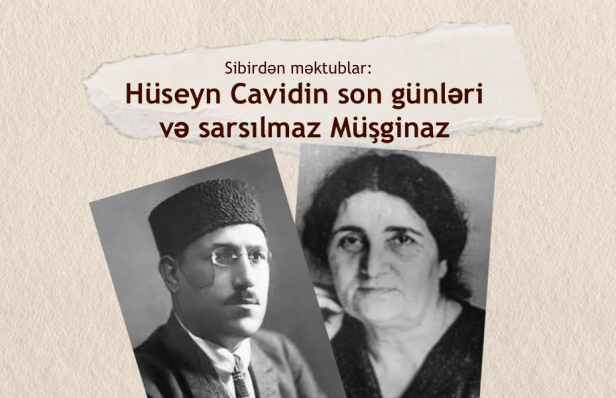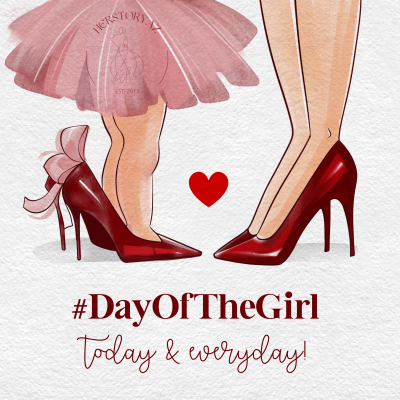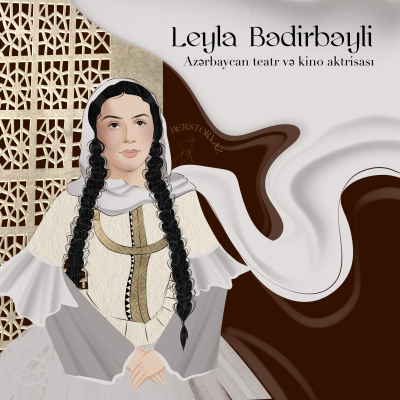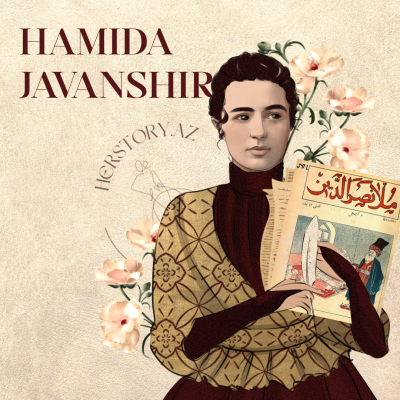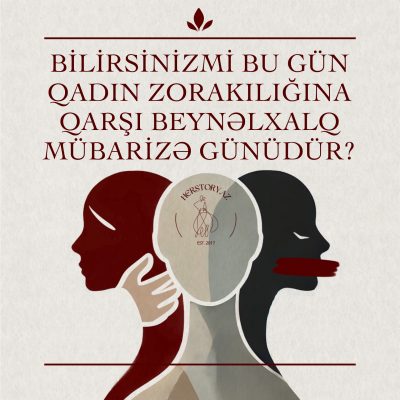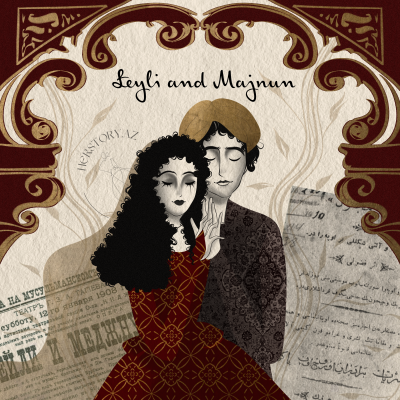Surviving Revolution, Finding Paris: The Story of Banin
The story begins with an event that was quite common in Azerbaijan at the time—oil was struck in the backyard. This “black gold” brought immense wealth, foreign tutors and servants, luxurious clothes, and travel opportunities around the world. Banin’s grandfather, Shamsi Asadullayev, became what people called “Allah’s favored son.” Umm al-Banu, the youngest of four daughters, was born in 1905. Tragically, her mother passed away giving birth to her. Although the youngest in a family is often the most spoiled, this was not the case with her.
“It took me years to find my own view of the world. My real life began with the toys my father brought me from Berlin. Though this life was mostly made of symbols, as a child, I believed it to be real.”
In her autobiographical novel “The Caucasian Days”, Banin later reflects on a carefree childhood in a grand house, where beautiful music flowed from the piano under the glow of gold-plated lamps during celebrations. Her sharp memory preserved the scents of Christmas trees, the taste of Nowruz sweets, the quiet chime of her grandmother’s jewelry, and the warmth of conversations in the family’s home.
“Like most children, I believed everything around me was alive. I thought trees and flowers could understand me and even speak back in their own simple language. I pitied adults for being blind to this world, which seemed open only to me.”
The girl experienced an extraordinary historical era, where, without ever leaving her street, she would become a citizen of three nations—the Russian Empire, the Democratic Republic of Azerbaijan, and finally, the Soviet Union.
With the fall of the Russian Empire in the 1917 Revolution, Baku’s situation became volatile and dangerous. To escape lawlessness and violence from Dashnak militants, her family took refuge in Iran for six months. Eventually, they returned as Azerbaijan entered a new phase of independence.
“Our beautiful city of minarets and oil rigs became the capital of the independent Republic of Azerbaijan. A parliament with many political parties was formed, an army was established, and a young composer wrote our national anthem.”
Banin’s father was appointed Minister of Commerce, and the family’s home was guarded by two Azerbaijani soldiers. Her father wore a broad yellow sash, a symbol of pride for the family.
Following the death of her maternal grandfather, Musa Nagiyev, Banin inherited a vast fortune at just thirteen. But her wealth did not last long.
“One early morning, I woke to the sound of the Internationale anthem echoing from the streets. Soldiers marched below, and they were not from our army. At midnight, the 11th Red Army entered Baku, and without firing a single shot, the Azerbaijani Republic vanished. Russia had reclaimed its former ‘property.’ I witnessed the end of an entire world.”
The family lost everything, and her father was imprisoned. Before these tragic events, part of the family had already traveled to France. Banin remained in Baku through this tumultuous period but finally moved to Paris in 1924.
“Paris… To truly understand ‘I am in Paris,’ one must endure the hell of exile. Paris, for a lifelong dreamer, is the very gate to paradise. Emerging from the haze of dreams, Paris materialized into cobbled streets, squares, and monuments—a bouquet of beauty and new life.”
While Soviet immigrants in Paris lived with “packed suitcases,” hoping to soon return to Russia, Banin held no such illusions. The former millionairess quickly adapted, finding work at a French company, modeling for designers, and doing translations. The education she had received at home proved invaluable.
Banin’s life in Azerbaijan and emigration to France is vividly recounted in her 1945 memoir, The Caucasian Days. This book, though not her first, made her famous in France, a country that warmly embraced her unique story. With this newfound fame, she entered the highest social circles, gaining both respect and success.
Her first book drew the attention of Ernst Jünger, a German officer, writer, and philosopher. In her book “Meeting with Ernst Jünger”, Banin describes their relationship. Her life was filled with these fateful connections that would become the subjects of her most successful books.
Banin once noticed a photograph at a friend’s house that drew her interest. The friend introduced her to the man in the picture—none other than Nobel laureate Ivan Bunin.
Bunin, captivated by “the Queen of Shamakhi” (for Banin was born in Shamakhi), quickly fell in love with her. Living nearby in Paris, he frequently visited her, trying to win her heart. Though they talked and argued passionately, Banin would not yield to his advances.
Their brief three-month romance ended due to Bunin’s refusal to accept Banin’s independence—a quality she had painstakingly achieved. He couldn’t stand her rejection and misunderstood her deeply. Banin, on the other hand, couldn’t bear Bunin’s attempts to control her. In her magazine “Time and Us”, Banin would later publish her messages to him, calling them “The Last Battle of Bunin.”
During the Karabakh War, when Azerbaijan faced an information blockade, Banin actively wrote about the conflict for various magazines and newspapers, advocating for her homeland. “I witnessed it all; I was born in 1905,” she would say, opening many doors for herself.
Banin was truly a citizen of the world, caring little for a person’s nationality or history. Individuality, to her, was the peak of human nature. Unafraid to speak her mind, she held her own opinions on every subject. Banin’s great literary talent has left us with a rich historical legacy that Azerbaijan will continue to discover and study for years to come.
